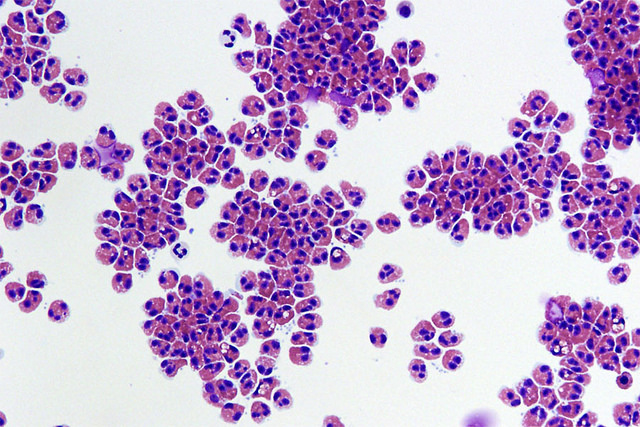Blockade of the platelet glycoprotein IIb/IIIa receptor with abciximab (a monoclonal-antibody Fab fragment directed against the receptor) has been shown to diminish ischemic complications among patients undergoing high-risk coronary angioplasty or directional atherectomy but increases bleeding complications. The widespread applicability of this treatment is unknown, particularly in view of the observed risk of hemorrhage.
Blockade of the platelet glycoprotein IIb/IIIa receptor with abciximab (a monoclonal-antibody Fab fragment directed against the receptor) has been shown to diminish ischemic complications among patients undergoing high-risk coronary angioplasty or directional atherectomy but increases bleeding complications. The widespread applicability of this treatment is unknown, particularly in view of the observed risk of hemorrhage.In a prospective, double-blind trial, we randomly assigned patients undergoing urgent or elective percutaneous coronary revascularization at 69 centers to receive abciximab with standard-dose, weight-adjusted heparin (initial bolus of 100 U per kilogram of body weight); abciximab with low-dose, weight-adjusted heparin (initial bolus of 70 U per kilogram); or placebo with standard-dose, weight-adjusted heparin. The primary efficacy endpoint was death from any cause, myocardial infarction, or urgent revascularization within 30 days of randomization.The trial was terminated at the first interim analysis, with 2 792 of the planned 4 800 patients enrolled. At 30 days, the composite event rate was 11.7 % in the group assigned to placebo with standard-dose heparin; 5.2 % in the group assigned to abciximab with low-dose heparin (hazard ratio, 0.43; 95 % CI, 0.30 to 0.60; P<0.001); and 5.4 % in the group assigned to abciximab with standard-dose heparin (hazard ratio, 0.45; 95 % CI, 0.32 to 0.63; P<0.001). There were no significant differences among the groups in the risk of major bleeding, although minor bleeding was more frequent among patients receiving abciximab with standard-dose heparin.Inhibition of the platelet glycoprotein IIb/IIIa receptor with abciximab, together with low-dose, weight-adjusted heparin, markedly reduces the risk of acute ischemic complications in patients undergoing percutaneous coronary revascularization, without increasing the risk of hemorrhage.(Source: European Society of Cardiology: Acute Coronary Syndromes Trials)
All content and media on the HealthEngine Blog is created and published online for informational purposes only. It is not intended to be a substitute for professional medical advice and should not be relied on as health or personal advice. Always seek the guidance of your doctor or other qualified health professional with any questions you may have regarding your health or a medical condition. Never disregard the advice of a medical professional, or delay in seeking it because of something you have read on this Website. If you think you may have a medical emergency, call your doctor, go to the nearest hospital emergency department, or call the emergency services immediately.







